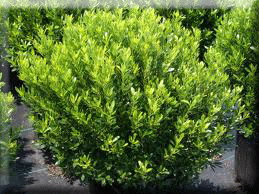Native Plant Lists/Benefits of Planting with Regionally Native Plant Species

Go Native!
Whether it's a comprehensive start-from-scratch landscaping project or simply selecting the perfect shrub to fit into a corner of the yard, the Cape Cod homeowner is met with a daunting number of choices when visiting the local nursery.
What grows best in the Cape's climate, or is most compatible with our sandy soils? Which plantings are the most drought tolerant? Does a certain plant need to be fertilized? Is it disease resistant?
APCC has launched an initiative to promote the use of native plant species by homeowners and professional landscapers. By creating an interest among consumers to use native plants, we also hope to encourage more local nurseries to stock a larger inventory of native plants.
The first phase in this initiative is our List of Native Plant Species. This list was compiled by the Mass. Office of Coastal Zone Management. (Please also see the Cape Cod Cooperative Extension Plant List), and includes plant species native to southeastern Massachusetts that can be readily obtained by commercial nurseries for their customers.
Native plants are not just an environmentally preferred alternative to the non-native plants commonly used in landscaping-they are typically hardier and better adapted to thrive in this region. Consequently, native plants require less water, fertilizer and pesticides. Eliminating the need to fertilize or apply pesticides helps protect our groundwater, ponds and coastal embayments. Selecting drought-tolerant species conserves water use. All of this translates into a healthy, beautiful landscape that also saves you money!
Native plants have the added advantage of providing natural food and shelter for birds, butterflies and other wildlife. And their use also helps protect the Cape from non-native invasive plant species. For every category of plant, shrub or tree sold in a commercial nursery, there is an equally attractive native plant species that can be used-if there is a demand for it.
Benefits
- Native plants have evolved over thousands of years to exist among an area’s particular climate, soils and precipitation amounts. They have also evolved to deal with indigenous insects, fungi and diseases.
- What this means to the landowner is that native plants require less care to maintain and they require less watering.
- They are aesthetically and biologically in harmony with the natural landscape.
- Non-native ornamental plants often require fertilizers, pesticides and regular watering.
- In addition, non-native plants such as hybrids may not produce fruit or seed, which precludes wildlife from using them as a food source.
- Native plants are the fundamental component in the landscape that provides wildlife habitat to the Cape’s native wildlife species.
- Animals have co-evolved with these native plants for their breeding, food and shelter requirements. Planting with native plants helps to protect wildlife habitat in your area.
Where to Find Native Plant Species
Mahoney’s East Falmouth
958 Route 28
East Falmouth, MA 02536
(508) 548-4842
Cape Cod County Conservation
PO Box 678
Barnstable, MA 02630
(508) 771-8757
Tavares Nursery
25 Crocker Road
East Falmouth, MA 02536
(508) 548-4673
New England Wetland Plants, Inc.
820 Main Street
Amherst, MA 01002
(413) 548-8000
Sylvan Nursery
1028 Horseneck Road
Westport, MA 02790
(508) 636-4573
Weston Nurseries of Hopkinton
93 East Main Street
Hopkinton, MA 01748
(508) 435-3414
Cataumet Garden Center
1379 Route 28A
Cataumet, MA 02534
(508) 563-7444
Native Plant Species for Cape Cod, Massachusetts
Wetland Status Key
| OBL | Obligate – Occurs 99% in wetlands |
| FACW | Facultative Wetland – Occurs |
| FAC | Facultative – Equally likely to occur in wetlands or uplands |
| FACU | Facultative Upland – Occurs 67% - 99% in uplands |

